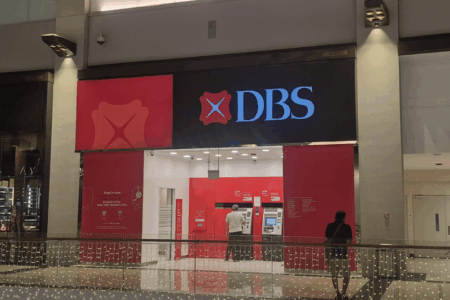It’s probably an understatement to say that the REIT sector has been having a tough time.
The combination of sharply higher interest rates since 2022, coupled with inflationary pressures, has dented the prospects of many REITs.
Stunted by higher operational and finance costs, numerous REITs have reported lower distributable income and dished out lower distributions over the past three years.
Could the dark clouds finally be lifting soon?
And could this be the right moment to scoop up shares of high-quality REITs on the cheap?
The Federal Reserve stays its hand
REITs are very sensitive to interest rate movements as they borrow heavily to fund their operations as well as acquisitions.
Unfortunately, the US Federal Reserve has held its benchmark interest rate constant in the range of 4.25% to 4.5% yet again.
It is now the fourth consecutive time that the central bank has refrained from cutting rates, with the last cut being 0.25 percentage points back in December 2024.
Worryingly, the Federal Reserve raised its projections for inflation and also lowered its economic growth forecast.
Officials are waiting for more data to come in before they make the next decision.
But if inflation remains stubbornly high, rates may end up staying “higher for longer”.
Currently, the central bank’s dot plot suggests that there will be two rate cuts this year, and officials expect the Federal Funds rate to fall to 3.9%.
For next year, though, only one interest rate cut has been pencilled in.
Tariff worries
To make matters worse, Trump’s recent tariff declaration has thrown another spanner in the works.
These additional taxes are expected to impact supply chains, with businesses raising the prices of goods and services to offset the higher costs of doing business.
As these businesses hike their prices, it will feed into inflation and could lead to the same level of runaway inflation that the US experienced in 2022 and the early part of 2023.
Tariffs could have another unintended effect of crimping consumer spending as people hold back because of higher prices.
Lower spending will translate to lower demand for goods and services, thereby affecting both industrial and retail REITs.
Hence, these headwinds could result in prolonged pessimism towards the REIT sector that will continue unabated.
Roses among the thorns
While many REITs are still suffering the effects of these headwinds, there are notable exceptions.
This rare group of REITs managed to beat the odds and continue posting higher distribution per unit (DPU).
Some of them also have clear catalysts for growing their rental income, either through acquisitions, asset enhancement initiatives (AEI), or positive rental reversions.
One example is Frasers Centrepoint Trust (SGX: J69U), or FCT.
The retail REIT saw its DPU inch up 0.5% year on year to S$0.06054 on the back of a 7.1% year-on-year increase in gross revenue.
FCT recently completed its DPU-accretive acquisition of a 100% stake in Northpoint City’s South Wing.
The REIT also commenced its AEI of Hougang Mall, which is targeted to be completed by the third quarter of 2026.
Another example is Keppel DC REIT (SGX: AJBU).
The data centre REIT reported a stellar set of earnings for the first quarter of 2025, with revenue jumping 22.6% year on year to S$102.2 million.
DPU increased by 14.2% year on year to S$0.02503 for the quarter.
Keppel DC REIT completed the acquisition of two Singapore data centres last year and also reported a healthy positive rental reversion of ~39% for 2024.
A silver lining?
There may be good news coming for the REIT sector that may indicate a reversal of the sector’s fortunes.
Back in December last year, France’s Praemia REIM was considering listing a healthcare REIT in Singapore, which could be valued at between US$2 billion to US$3 billion.
And as recently as last month, Japan’s Nippon Telegraph and Telephone (NTT) (TYO: 9432) released details of a planned data centre listing on the Singapore Exchange (SGX: S68).
The telco planned to transfer six of its data centres to a proposed REIT called NTT DC REIT for around US$1.6 billion.
Several mainboard-listed companies are also mulling the listing of a REIT to unlock value for shareholders.
Centurion Corporation (SGX: OU8) applied to list a REIT comprising the group’s worker and student accommodation assets.
Boustead Singapore Limited (SGX: F9D) recently announced that it is conducting a strategic review for the possible sale of its logistics and industrial real estate assets to a REIT, to be listed on the mainboard of the exchange.
Even Malaysia may be chiming in, with IOI Properties Group (KLSE: 5249) stating its intention to list its commercial and hospitality assets by 2027 to cut debt.
Get Smart: The upturn could be coming soon.
Although interest rates remain high and could stay “higher for longer”, these rumblings of potential REIT listings bode well for the Singapore Exchange.
With Singapore being a popular REIT listing venue, the news of potential REIT listings in the coming months may provide a confidence boost to the sector.
Income investors can look forward to a sentiment uptick and better valuations should these REITs manage to list either later this year or in 2026.
First-time investors: We’ve finally released our Beginner’s Guide. Read it in an afternoon, follow the principles, pick an investing style and buy your first SGX stocks within the next few hours! Click here to download it for free.
Follow us on Facebook, Instagram and Telegram for the latest investing news and analyses!
Disclosure: Royston Yang owns shares of Singapore Exchange, Keppel DC REIT and Boustead Singapore.





